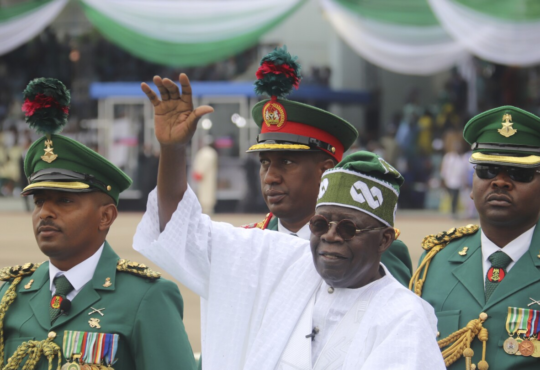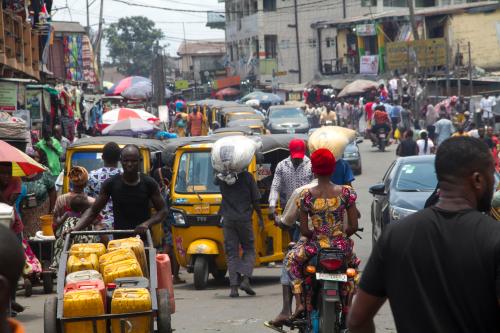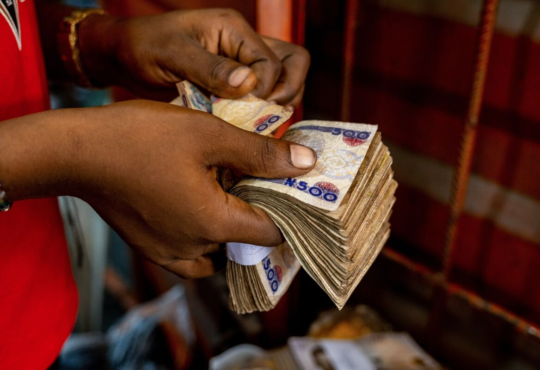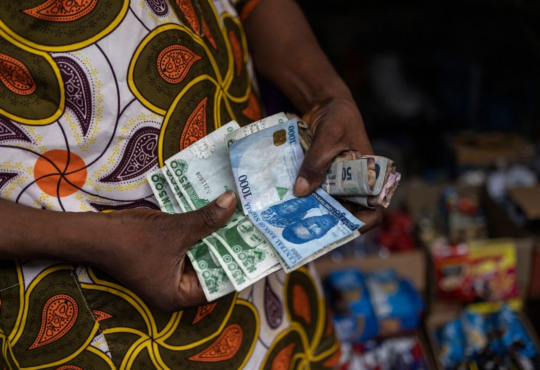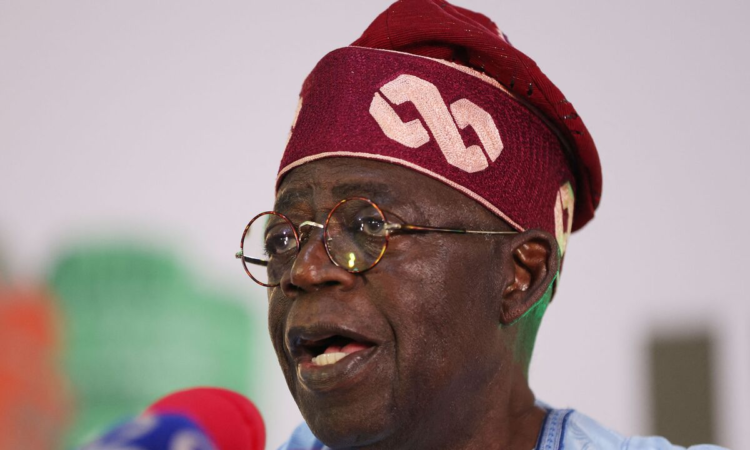
Connecting decision makers to a dynamic network of information, people and ideas, Bloomberg quickly and accurately delivers business and financial information, news and insight around the world
Americas+1 212 318 2000
EMEA+44 20 7330 7500
Asia Pacific+65 6212 1000
Connecting decision makers to a dynamic network of information, people and ideas, Bloomberg quickly and accurately delivers business and financial information, news and insight around the world
Americas+1 212 318 2000
EMEA+44 20 7330 7500
Asia Pacific+65 6212 1000
Bola Tinubu
President Bola Tinubu’s effort to shake up the Nigerian economy and boost growth is already stumbling. After succeeding Muhammadu Buhari in late May, he scrapped costly fuel subsidies, removed the central bank governor and overhauled the country’s exchange-rate policies — effectively devaluing the currency, the naira. Tinubu’s initial steps enthused investors but elicited a public backlash over rising food and fuel costs. By mid-September, Tinubu had paused the fuel subsidy phase-out and the naira was in freefall on the informal market, frustrating his efforts to close the gap between the currency’s official and unofficial price.
About 40% of Nigeria’s more than 200 million people live in dire poverty, according to the World Bank, with just 11.8% of the labor force involved in wage employment, according to the nation’s statistics agency. Inflation climbed to an 18-year high of almost 26% in August, with food costs growing 29%. Corruption is endemic, many state institutions are dysfunctional and armed bandits and Islamist militants have free rein across swathes of the country’s north. The government spent 96% of the revenue it collected in 2022 on servicing its loans. Oil production — the lifeblood of the economy — has reached lows last seen in the 1980s. In August, Nigeria produced only 1.18 million barrels of crude, nearly 500,000 barrels below its allotted OPEC quota, which it has been unable to meet for at least two years. In June, the World Bank forecast that Nigeria’s gross domestic product would only expand by 2.8% this year, barely keeping pace with the increase in the population, and “far slower than needed to make significant inroads into mitigating extreme poverty.”


